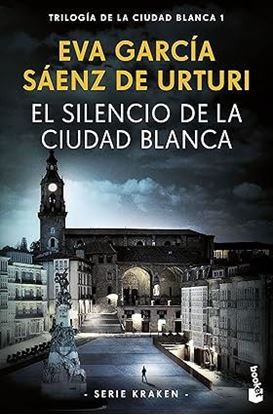

DISIDENTES
En un futuro cercano, nada imprevisible ha ocurrido. Al contrario, todo es un poco más frío, más distante. Los ancianos, los sentimientos o la vida de los outsiders valen menos y las fronteras, más.
Esta es la historia de Shasta, hija de un disidente y locutor furtivo de relatos. Ambos construyen emisoras de radio en un taller secreto de su casa. Con ellas realizan incursiones nocturnas y narran historias que forman parte de un plan cuyo propósito completo Shasta desconoce. También es la historia de Matt Scott, director del cuerpo de seguridad de fronteras, el peor enemigo de los disidentes y vecino de Shasta. La trama los unirá en un duelo psicológico de mutuos intereses escondidos en conversaciones íntimas que ninguno elude. La intuición y la inteligencia serán las únicas armas de un juego que poco a poco se intuye fatal.
Disidentes se plantea con todo el suspense de un thriller de ciencia ficción. No obstante, la tensión argumental de esta novela no es su máximo valor, el diseño de su arquitectura permite que asome en la novela una nueva capa más profunda, más vital.
Disidentes está construida por una historia trasversal la cual se ve atravesada por la narración furtiva de diez relatos. Diez relatos de gran fuerza visual, cosidos sobre ella de tal forma que cada uno aporta un eco importante a su paso. En cada narración, el suspense del thriller deja lugar a materias más íntimas. El amor, la vejez, los recuerdos, el concepto del tiempo o del mal flotan en la trama de cada relato y, gracias a ellos, la historia trasversal consigue revelarse en todas sus dimensiones llegando a tomar una entidad y un calado inesperados.
850
638
SOY AFRODITA (OF1)
¿Cómo alguien con tan mala suerte en sus relaciones puede ser la reencarnación de la diosa del amor, la sensualidad y la belleza?
Tras pillar a su novio poniéndole los cuernos, Paula se va de crucero con su amiga Mónica por las Islas Griegas. En el templo de Apolo en Delfos, un hippy que lleva un cuervo en el hombro, fuma mucha marihuana para dispersar las visiones y asegura ser el oráculo le revela que ella es la reencarnación de Afrodita, la diosa del amor.
En ese momento, Paula iniciará una alocada aventura en la que se cruzará con otros dioses griegos reencarnados como Ares, Hermes o Zeus, además de luchar contra los malvados Hefesto y Eris. Paula deberá encontrar la forma de ser amada genuinamente sin usar sus poderes… ¿Lo logrará?
Soy Afrodita es una novela disparatada y divertida que se sirve de la fantasía para hablar de temas reales y de actualidad: desde la falta de autoestima a la soledad, pasando por las relaciones tóxicas; todo ello aderezado con grandes dosis de salseo, tanto actual como mitológico.
¿Te atreves a descubrir a tu diosa interior?
500
375
LA TORRE DEL ANGEL VERDE. AÑORANZAS 4/4
Una saga de fantasía épica que llega a su fin.
En una narración plena de guerras, aventuras, amor y desengaño, amistad y brujería, se llega a un sorprendente desenlace. El poder de la magia es capaz de quebrantar el orden del tiempo y el espacio, y tanto los humanos como los sitha se vuelven en contra de sus congéneres. Los pocos miembros que sobreviven de la Liga del Pergamino son los únicos capaces de desvelar un secreto que permita acabar con un mal que parece indestructible.
1,200
900
KALPA IMPERIAL
Kalpa imperial reúne once relatos, once fragmentos de la historia del Imperio Más Vasto que Nunca Existió.
Por el narrador sabemos que el Imperio fue destruido y reconstruido infinidad de veces y que su historia vuelve a empezar con cada nueva dinastía de emperadores y emperatrices.
El escenario es siempre el mismo: el montañoso norte, el sur selvático y las ciudades capitales. Las historias son múltiples y diversas. Como la de Bib, el chico esmirriado que pretende refundar el Imperio e inventar un nuevo orden; la del último príncipe de la dinastía de los Orioles y su extraña muerte; la de la huérfana que asciende desde los bajos fondos hasta el trono; la del Emperador Cuarto en las dinastía de los Kiautonor, que manda a construir una ciudad en honor de su amante.
Angélica Gorodischer crea un universo ficcional portentoso, absolutamente propio, donde la distopía se cruza con el realismo, la novela con el cuento, la metáfora sobre el poder con el pequeño drama humano. Publicado por primera vez en 1983, Kalpa imperial marcó un hito en la obra de esta gran autora argentina y la convirtió en una referente ineludible de la ciencia ficción universal.
995
746
OFENSA AL FRIO
Alba y Miguel son un matrimonio destrozado tras haber perdido a lo que más querían: su hija.
El dolor y la culpa han conseguido que ya no mantengan ninguna relación, ni física ni emocional; de hecho, apenas se dirigen la palabra. Son dos extraños que comparten lo único que les une a día de hoy, la casa en la que viven. Pero sus vidas dan un vuelco cuando se ven implicados en el asesinato de un hombre con el que Alba tuvo un affaire.
¿Cómo explicarle a Miranda Delgado, la inspectora de Homicidios encargada del caso, que la verdadera asesina lleva años muerta? ¿Cómo convencerla de que cese en la búsqueda de un culpable cuando la víctima podría haberla puesto tras la pista para encontrar vivo a su propio hijo?
995
746
UN PAIS EXTRANJERO
Una trama familiar que alcanza un gran aliento épico para reflejar las turbulencias de la historia española y europea del siglo xx.
En el año 2018, en busca de un clima más soleado y benigno, Primi e Isabelle, un matrimonio belga de clase media, deciden comprar una casa en la Costa Brava catalana. La propiedad, en los alrededores de Tossa de Mar, está muy próxima a un antiguo hotel, Casa Johnstone, que durante la Guerra Civil fue adaptado por sus propietarios como refugio para un nutrido grupo de niños republicanos, algunos de ellos procedentes de Mequinensa, en la Franja catalano-aragonesa. Primi, que es hijo de españoles emigrados a Bélgica en los años sesenta, acaba descubriendo que entre esos niños estuvieron su propio padre y su tío.
995
746
LA MASACRE OLVIDADA
Tras una exhaustiva documentación y partiendo de recuerdos transmitidos por su familia, el célebre autor siciliano revive, en una historia de humor amargo, las masacres de 1848 en Sicilia oscurecidas por las autoridades y olvidadas por los historiadores.
La primera masacre tuvo lugar en Porto Empedocle, donde el mayor Sarzana liberó de un solo golpe a 114 prisioneros, los asfixió y los quemó vivos en una celda común; el segundo tuvo lugar en Pantelleria, donde quince agricultores fueron ejecutados por acusaciones de mafiosos y terratenientes. Las autoridades, las borbónicas y las unitarias confundieron y ocultaron su suerte, y ningún historiador se ocupó jamás de ellas. Los asesinos y cómplices silenciosos hicieron sus carreras, primero bajo los Borbones y luego en la Italia unificada.
995
746
LA PASADORA
Pirineos, años cuarenta. Sol Mentruit debe huir de su pueblo y refugiarse entre un grupo de contrabandistas en Andorra por haber presenciado un asesinato. Una vez allí, entra en una red de evasión en la que empieza a llevar documentación sensible al consulado británico de Barcelona. En medio de sus viajes se enamora de Max Schell, un francés estrafalario e intelectual del que descubrirá que es un oficial alemán. Cuando el líder de la red, Quim Baldrich, se entera de la relación entre Sol y Max, la expulsa, pero ella decide realizar un último acto para demostrar su lealtad y llevar a un grupo de refugiados a cruzar los Pirineos de Toulouse a Barcelona para salvarlos. Diferentes historias se irán entrecruzando hasta confluir en ese momento que resultará definitivo para todos.
995
746
EL SILENCIO DE CIUDAD BLANCA 1 (BOL)
La novela que dio inicio al fenómeno imparable de la Trilogía de la Ciudad Blanca.
«Una ciudad aterrorizada por el regreso de unos asesinatos rituales. Un experto en perfiles criminales que esconde una tragedia. Un thriller hipnótico cuyas claves descansan en unos misteriosos restos arqueológicos»
Tasio Ortiz de Zárate, el brillante arqueólogo condenado por los extraños asesinatos que aterrorizaron la tranquila ciudad de Vitoria hace dos décadas, está a punto de salir de prisión en su primer permiso cuando los crímenes se reanudan de nuevo: en la emblemática Catedral Vieja de Vitoria, una pareja de veinte años aparece desnuda y muerta por picaduras de abeja en la garganta. Poco después, otra pareja de veinticinco años es asesinada en la Casa del Cordón, un conocido edificio medieval.
El joven inspector Unai López de Ayala —alias Kraken—, experto en perfiles criminales, está obsesionado con prevenir los crímenes antes de que ocurran, una tragedia personal aún fresca no le permite encarar el caso como uno más. Sus métodos poco ortodoxos enervan a su jefa, Alba, la subcomisaria con la que mantiene una ambigua relación marcada por los crímenes… El tiempo corre en su contra y la amenaza acecha en cualquier rincón de la ciudad. ¿Quién será el siguiente?
Una novela negra absorbente que se mueve entre la mitología y las leyendas de Álava, la arqueología, los secretos de familia y la psicología criminal. Un noir elegante y complejo que demuestra cómo los errores del pasado pueden influir en el presente.
800
600

















